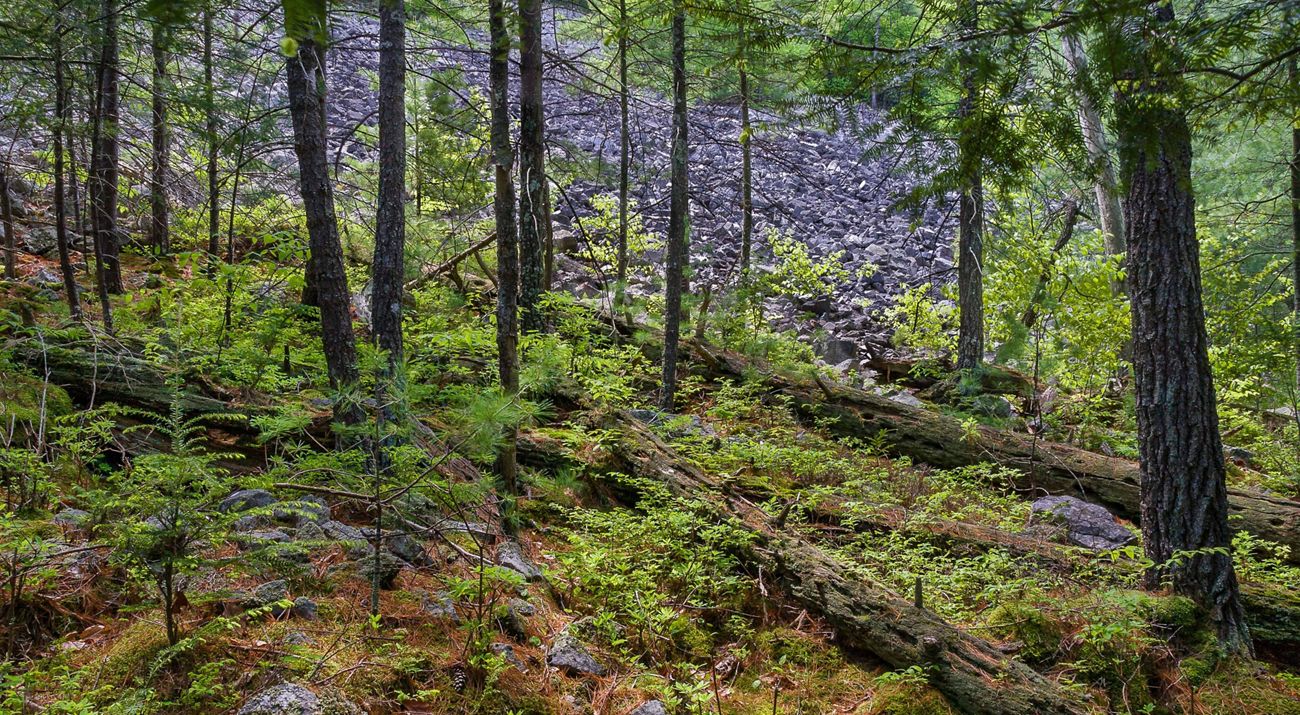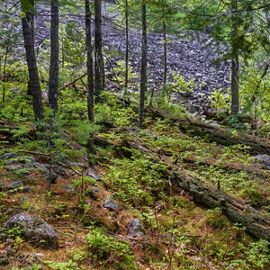Description
For generations of North River Mills residents, summertime meant weekend pilgrimages to Ice Mountain. There, at the rocky base, they’d chip off chunks of ice to cart home as the critical ingredient in fresh, homemade ice cream and chilled lemonade.
Ice Mountain gets its name from the refrigeration effect that takes place inside its talus—this formed when broken rock tumbled down the steep slopes creating in some places nearly 50 feet thick layers of Oriskany sandstone. Within this rock talus lies crevices and small caverns producing a frigid climate. During the winter, ice forms in the talus. As the warmer months arrive, the outer ice melts but the unexposed inner remains, in some cases, until August. It’s here, at the foot of the mountain, that many local children would eagerly gather ice.
This preserve was designated a National Natural Landmark by the National Parks Serve in 2012. This award goes to locations that possess outstanding biological and geological features that contribute to the understanding of our nation’s natural heritage.
What We’re Doing
- Trained docents lead interpretive hikes on the Preserve by reservation, usually on Saturdays.
- Working with volunteers to control invasive non-native plants, such as tree-of-heaven, garlic mustard, Japanese stiltgrass, and Wine berry, which compete with the preserve’s native and rare plants.
- Partnering with the US Forest Service and West Virginia Department of Agriculture to treat hemlocks (which shade and cool the ice vents) from an infestation of a non-native insect pest—the hemlock woody adelgid.
- Cooperating with West Virginia University geologists on research about the formation and conservation of the ice vents system.
- Working with WVDNR to monitor long term plots to observe changes to rare plants on the preserve.

